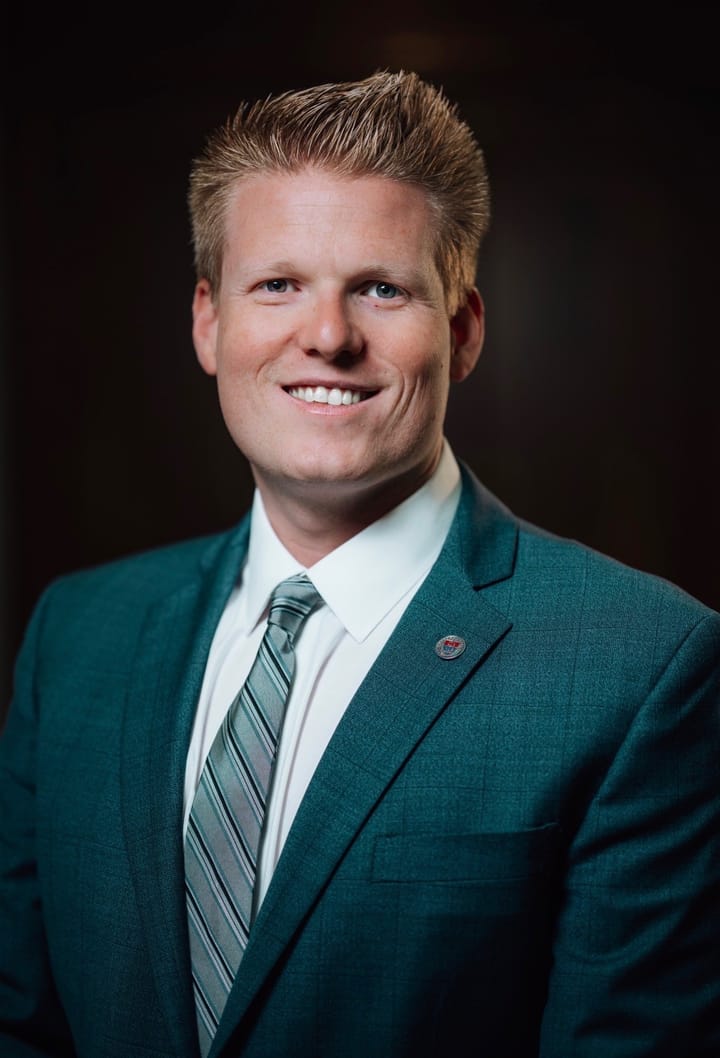Could you run your firm from an island? 🌴
Michael McCready did it—and the results surprised even him

When most lawyers talk about leaving behind the day-to-day grind and moving to a tropical island, it’s wishful thinking. For Michael McCready, chairman and managing partner of McCready Law Injury Attorneys, it became a reality. About a year ago, he and his wife left Chicago for Puerto Rico to take advantage of the island’s generous Act 60 tax incentives. But what started as a financial strategy has turned into something bigger.
Here, he shares what it’s like to run your firm from 2,000 miles away, why tax benefits are only part of the story and what surprised him most about life and business in Puerto Rico.
— Interview by Emily Kelchen, edited by Bianca Prieto
Can you briefly explain what Act 60 is?
Puerto Rico is a U.S. territory, not a state, and is not subject to the IRS tax code; they have their own, which largely mirrors the U.S. tax code. But it allows them to create incentives. One incentive is Act 60, which is meant to attract capital to Puerto Rico. You create a Puerto Rico LLC, which consults with your U.S. law firm, and it is considered an export of services. By doing so, you pay 4% tax on dividends/profits for your Puerto Rico LLC. There are many restrictions, but 4% is much better than the tax rate on the U.S. mainland.
What advice would you give other lawyers who are curious about the potential financial benefits of moving to Puerto Rico?
Research the requirements, visit and explore, and talk to someone who has done it. I have a colleague who has been here since 2021. He sparked my interest and helped me handle all the logistics. I am now doing the same for my friends and colleagues.
What do you tell people who have done their research and decided to make the move?
You have to be intentional about a relocation. You need to plan for it. You need to structure your firm and your trusted leaders to handle you not being physically present. It all comes down to the systems you have in place. “Systems run the business and people run the systems.” Truer words have never been written. Your firm should be structured before you contemplate relocation, not after you have left.
But perception is also important. You do not want the firm to think, “He’s moved to Puerto Rico and he won’t be involved anymore.” If you relocate, you must stay engaged. Your firm has to see you as a participant. We all know absentee law firm owners whose disconnect has nothing to do with their location. Don’t be one of them.
Beyond tax advantages, what do you see as the biggest benefits and challenges of relocating?
There’s an expression among the people whom I have met who have travelled the same path as me: “I came for the tax benefits, but I stay for the people.” I would never have thought to live in Puerto Rico except for the taxes, but now that we are here, it is an amazing place, filled with amazing people. We stay because this is now our home.
As for challenges, being away from my children and my friends in Chicago has taken some getting used to.
Does your firm have a remote work policy for other employees?
Our work-from-home policy applies to anyone living less than 30 miles from any of our physical offices. We require full-time, in-office, for the first six months. After that, employees are eligible to WFH two to three days per week. After working fully remote for one and a half years during COVID, it is unrealistic to think law firms will keep their top talent by requiring in-office. Law firms must adopt hybrid at least, and embrace fully remote.

You're all caught up!
Thanks for reading today's edition! You can reach the newsletter team at raisethebar@mynewsletter.co. We enjoy hearing from you.
Interested in advertising? Email us at newslettersales@mvfglobal.com
Was this email forwarded to you? Sign up here to get this newsletter every week.
Raise the Bar is written and curated by Emily Kelchen and edited by Bianca Prieto.




Comments ()